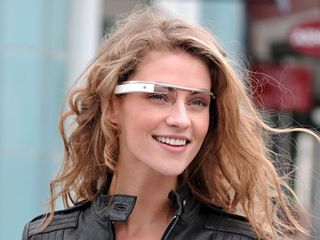Congress Questions Larry Page Over Google Glass
Congress wants to know how Google plans to protect consumers using and not using Google Glass.

Several members of Congress have submitted a letter to Google CEO Larry Page (pdf) asking about privacy concerns related to Google Glass and its embedded camera.
Created on May 16, the letter quotes articles published by The Wall Street Journal and Forbes, the first of which talks about the facial recognition technology pulling up a stranger's information such as his/her address, measurements, hobbies and so on. The Forbes article in question reports about that bar in Seattle that has banned users from entering with Glass on their face.
"As members of the Congressional Bi-Partisan Privacy Caucus, we are curious whether this new technology could infringe on the privacy of the average American," the letter states. "Because Google Glass has not yet been released and we are uncertain of Google's plans to incorporate privacy protections into the device, there are still a number of unanswered questions that we share."
The letter then dives into the 2010 controversy surrounding Google collecting information from unencrypted networks across the globe without permission. The company just recently coughed up $7 million to settle charges with 38 local states for the collection of data, and even admitted that it did not adequately protect the privacy of consumers. What does Google plan to do to prevent Google Glass from unintentionally doing something similar?
That's just one question; there are eight in all. Others ask about the extent of privacy considered when approving the app for the New York Times. Another wants to know what device-specific data Google plans to collect, and will this data be collected without the user's knowledge or consent. Others question about the facial recognition aspect while another asks Google what it plans to do to proactively protect the privacy of non-users when Glass is in use.
"Please provide examples of when Google would reject requests on Google Glass that would risk the privacy of others," the letter states. "Would Google place limits on the technology and what type of information it can reveal about another person? If so, please explain. If not, why not?"
The letter, signed by eight members of the Bi-Partisan Privacy Caucus including co-chairman Joe Barton, requests that Larry Page respond to the questions no later than Friday, June 14, 2013.
Stay on the Cutting Edge
Join the experts who read Tom's Hardware for the inside track on enthusiast PC tech news — and have for over 25 years. We'll send breaking news and in-depth reviews of CPUs, GPUs, AI, maker hardware and more straight to your inbox.
-
bustapr I actually hope google gives them a good and honest answer -_-Reply
to give them a bs answer would put google in deep shit with the gov and theyd be pissing over their consumers. regardless yours ideals on the government are, youd have to accept that some of these questions mentioned in the article are of consumer interest. I guarantee the grand majority of googles consumers would not like google lying about their privacy protection methods.
Im curious to know the answers google has to some of these questions. -
Michael Dulin they want to know what kind of backdoor access they will have so the gov can have mobile cameras. To protect us of course.Reply -
azgard Privacy concern's, total bs, more like congress want's access to the technology because the garbage they have been pushing for years still doesn't work right.Reply -
smeezekitty I don't see this illegal. Yes has privacy implications, but does this mean we can't carry cell phones or camera around? How is this any worse?Reply -
Adam Russell The questions and answers are pretty irrelevant. If google testifies they wont intrude on your privacy there is no guarantee the next 10 corps that produce a competing product will go the same way, and there is no guarantee google wont change their mind in 6 months.Reply -
fnh Congress decides to forget their job of overseeing federal agencies that routinely peruse private information on a far massive scale (sometimes with lackadaisical, or non-existent privacy concern protections), and decide to focus on the sensational consumer wireless-computer-camera-on-an-eye-frame.Reply -
Albert Rampo i think that law enforcement should be the only people to be alowed to use this technology imoReply
Most Popular


